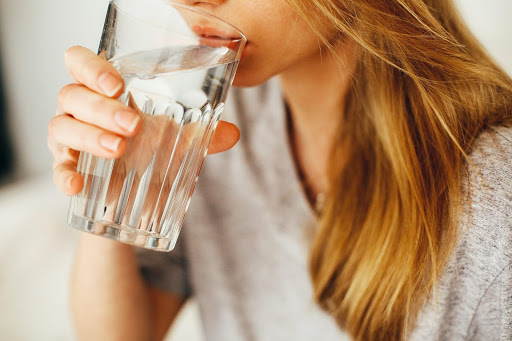

THE TOP 8 CHANGES IN LIFESTYLE AND DIET THAT CAN BOOST YOUR KIDNEY HEALTH

From filtering blood contaminants and body waste to removing excess body fluids through urine, regulating the levels of potassium and salt to modulating different chemicals, there is a range of critical activities that the kidneys perform within the human body.
The kidneys, which are about the size of a fist, found on both the sides of the spinal cord under the rib cage, are also responsible for restricting the development of red blood cells, activating various vitamins, and generating hormones that control blood pressure.
Primarily, because of today’s unhealthy lifestyle and diet choices, kidney-related problems are dramatically rising on a global scale. However, by implementing minor changes, you can keep yourself clear of many kidney ailments such as glomerulonephritis, polycystic kidney disease, urinary tract infection, and kidney stones.
Here are the top 8 tips for maintaining healthier kidneys to ensure overall physical well-being.
1. Stay Hydrated, but Don't Go Overboard
Water cleanses the kidneys of toxins and sodium, therefore, sufficient water intake reduces the possibility of developing major kidney diseases. There is no such rule of thumb about the amount of water you should drink every day. It varies from person to person, depending on their lifestyle, and other factors like gender, climate, and health conditions.
Famed nephrologist, Dr. James Simon of Cleveland Clinic says, “Contrary to popular belief, no studies have proven over-hydration as an effective practice in enhancing kidney function.” Although you should drink plenty of water, consuming over 2 liters of water per day is not a good idea.
2. Monitor Your Blood Pressure
If you have high blood pressure, the chances of your kidneys getting damaged are heightened. The impact can be substantial, if together with high blood pressure, there is a presence of other health problems, such as high cholesterol, diabetes, or heart issues.
The average person’s blood pressure level is 120/80. If your readings are over 140/90 consistently, you might have prehypertension or high blood pressure. In such a case, regularly monitor your blood pressure, take medicines after consulting your doctor, and make lifestyle changes.
3. Reduce the Intake of Sugar-Based Products
Kidney failures are common among people with high blood sugar or diabetes. This is because the kidneys have to work harder to filter blood that contains a high sugar (glucose) content. Over the years, this extra stress on the kidneys can be life-threatening.
“Most processed food products contain too much sugar, so when it goes to your system it leads to hormonal imbalance and also your blood profile changes. High consumption of these empty calories can cause obesity and diabetes - diseases that directly impact the functioning of your kidneys. You can treat yourself to your favorite dessert or a fast-food burger sometimes as long as it does not replace your daily balanced diet,“ says a renowned nutritionist, Dr. Anshul Jai Bharat.
To lower the possibility of kidney failure, you must keep blood sugar under control. However, if there is early detection of kidney damage because of diabetes, doctors can suggest ways to prevent further harm.
4. Lower the Consumption of Red Meat and Junk Food
In a study conducted by the National University of Singapore, participants who consumed large amounts of junk food and red meat were about 40% more likely to develop kidney damage than those who ate less red meat. The study’s lead author, Woon-Puay Koh, stated, “Our findings suggest that individuals can still maintain their protein intake unless their kidney function has been severely compromised. However, to reduce the risk of end-stage renal disease, it is best to eat red meat in moderation.
5. Exercise Daily to Stay Fit and Active
Physical activity, like a balanced diet, is crucial for controlling high blood sugar, high blood pressure, and excessive weight gain. Daily exercise plays a vital role in lowering the chances of chronic kidney disease, but depending on your health condition, be mindful of how much you are exercising.
“Overexerting yourself when you’re not in good shape can lead to serious problems, especially if you are at high risk for heart disease,” says nephrologist Dr. James Simon. For instance, if you have a heart issue, you need to consult with your doctor before starting a workout program.
6. Stop Taking Over-the-Counter Pills
If you routinely take over-the-counter medication for arthritis, chronic pain, or headaches, such as naproxen and ibuprofen, you might be unconsciously damaging your kidneys.
People have a lower chance of risking the health of their kidneys if they are occasionally using over-the-counter pills to address pain issues. But if you have to take non-prescription drugs regularly to fight pain, speak to your physician regarding alternate ways for pain relief.
7. Totally Quit Smoking
Our kidneys, without an adequate supply of blood, cannot perform optimally. Smoking damages the blood vessels, decreasing the blood flow in the kidneys.
Smoking, besides harming the blood vessels, enhances blood pressure risks, and it also increases your risk of developing kidney cancer.
8. Give Yourself Enough Sleep Time
Studies by Brigham and Women’s Hospital show that a short period of sleep can have adverse consequences on kidneys, which, with time, can give birth to many kidney-related complexities.
The Brigham and Women’s Hospital research also found that a disruption in the circadian clock, or the sleep-wake cycle, can compromise the natural function of kidneys. It is, therefore, crucial to treat yourself with good sleep times.
The Takeaway
Exercise daily, eat healthily, and make significant lifestyle changes to avoid straining your kidneys. Medical practitioners recommend a routine kidney checkup, if you are suffering from high blood pressure, cardiovascular disease, or diabetes. Regular tests will help reduce the possibility of future damage.
Related blog: KIDNEY DISEASES: CAUSES AND CURE














